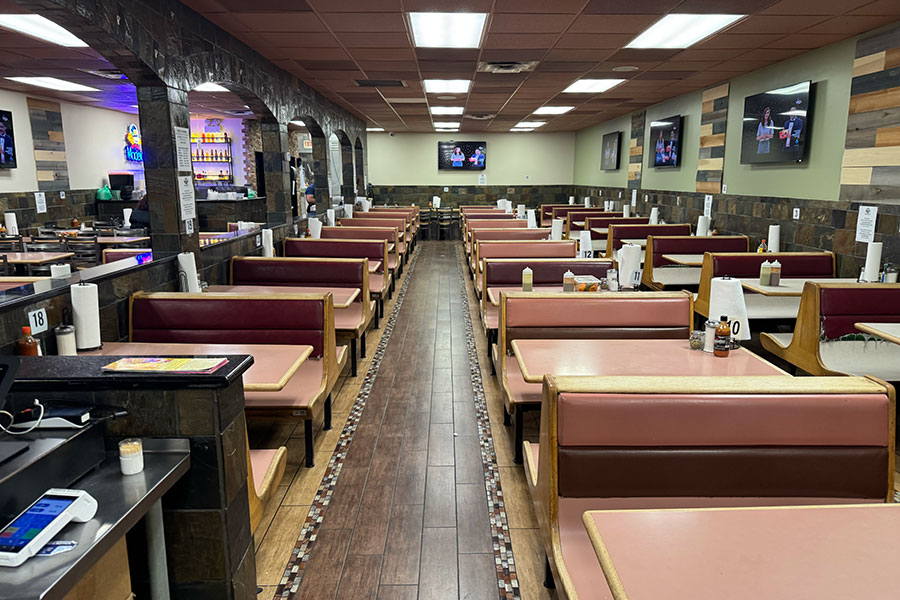Sunday brunch at La Catedral in Little Village often requires a two-hour (or longer) wait. These days, though, guests can arrive and be seated immediately. Since President Trump announced Operation Midway Blitz, business has plummeted.
“It’s very unusual to see empty tables here,” says Ulises, a restaurant employee who did not provide his last name. “This started at the beginning of September.”
While immigrant communities are under attack, Little Village’s economic health poses a unique threat to the health of the city as a whole. The predominantly Mexican community is the second-highest shopping district in the city, just behind Michigan Avenue. From Sacramento to Kostner Avenue, the two-mile stretch on 26th Street includes almost 500 small businesses. Restaurants, furniture stores, specialty apparel shops, and dozens of street vendors line the corridor. As economic research has shown, dollars spent at small businesses recirculate in the local economy at a higher rate than money spent at a non-local company. Should Little Village take a financial hit, it affects the whole of Chicago.
The Little Village Chamber of Commerce does not have formal economic impact numbers, but Executive Director Jennifer Aguilar says they’ve heard from business owners that weekly sales are reported to have dropped 70% from usual traffic before the Trump inauguration in January 2025. Aguilar says one owner of a wholesale produce distributor told her that the company lost $5.8 million in revenue from June of this year to now.
“This is not a normal economic environment,” says Marcos Carbajal, owner of Carnitas Uruapan, a James Beard Award-nominated taqueria. “We’ve never really operated in what you would say is a normal environment in Little Village.”
Carbajal’s Little Village location opened the day before Trump’s second inauguration in January. The threat of Immigration and Customs Enforcement loomed over the neighborhood then, but in the weeks following the September 8 Supreme Court ruling that allows ICE to question and detain people based on race or language, a feeling of dread has settled over the neighborhood.
“People are in a constant state of paranoia,” Carbajal says. “Week over week, our sales have plummeted by 35-40%.”
Sundays in Little Village were once the busiest days of the week. It was common to see bumper to bumper traffic on 26th Street and people — vendors and customers alike — packed the sidewalks. The neighborhood is now quiet and unrecognizable.
“People are afraid,” says Araceli, a street vendor selling fruit and chips who asked that her last name not be used, for fear of being targeted. “This is the first time all week I’ve been out. There’s no one to sell to.”
Carbajal likened the drop in sales to the pandemic. “The difference is, no one is coming to save us,” he says. “There’s no silver lining here. We’re being specifically targeted.”
Juan Carlos, a customer purchasing a cup of fruit from Araceli, says his mother, a naturalized citizen, is afraid to venture out, for fear of being targeted and detained by ICE due to her appearance.
The fear of detainment has killed foot traffic in the area and smothered a once lively and robust shopping district. Carbajal and other vendors repeated a common refrain: “Those who can, please come out and support us. We won’t survive if you don’t.”
“Do simple things like buy your groceries here or cater your work lunch from us or one of the restaurants in the area,” Carbajal says. “Our customer base is afraid and scared. We need help.”



